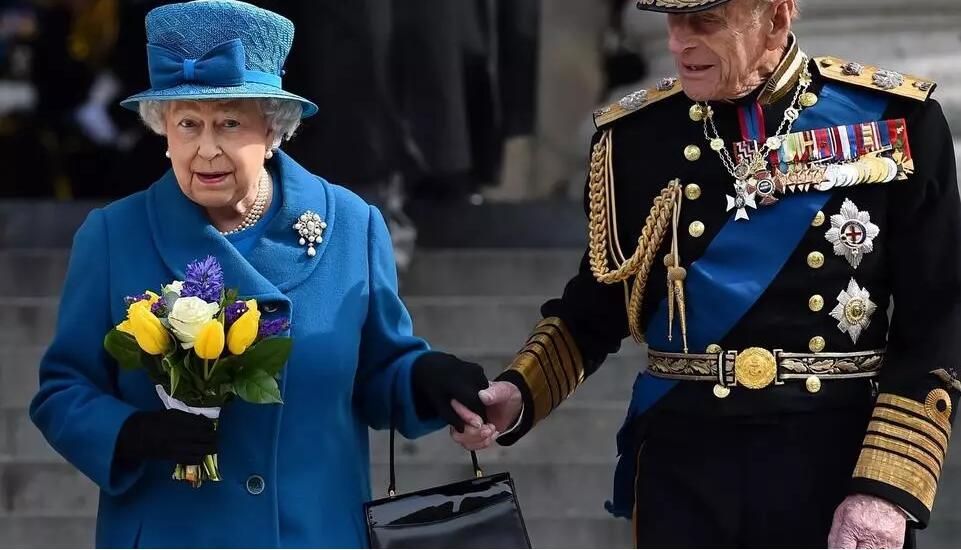His German family wanted him brought up in Germany, and sent him to the school they had founded at Schloss Salem in Baden-Wurttemberg. But Hitler’s rise to power put paid to that. Philip followed the Jewish headmaster, Kurt Hahn, to Scotland, where he founded a new school, Gordonstoun, with a forthright philosophy and the motto, “More is in you (than you think)”.
身在德國的家人希望他在德國長大,并把他送入他們在巴登-符騰堡州(Baden-Württemberg)創(chuàng)辦的薩勒姆王宮中學(xué)就讀。但希特勒掌權(quán)后讓這一切努力都付諸東流。菲利普跟隨猶太校長庫爾特·哈恩(Kurt Hahn)來到蘇格蘭,在那里哈恩創(chuàng)辦了一所高仕德學(xué)校。該校的辦學(xué)理念簡潔明了,校訓(xùn)是“你我皆是黑馬”。
As a schoolboy Philip was often naughty, though never nasty. He developed a strong sense of public duty and a taste for speed; he excelled at sports and learned to sail, often being given the job of galley cook as he seemed immune to seasickness.
學(xué)生時(shí)期的菲利普雖然時(shí)常淘氣,但從未行過火之事。他培養(yǎng)了強(qiáng)烈的公共責(zé)任感、喜歡追求速度;他擅長運(yùn)動(dòng),還學(xué)會(huì)了航海,經(jīng)常被叫到廚房幫廚,因?yàn)樗坪鯊牟粫灤?/p>

At 18 he went on to Dartmouth Naval College in the south of England, where he was named best cadet. When the second world war broke out that same year, he sailed to Colombo and joined a lumbering battleship escorting convoys of Australian troopships bound for Egypt. On board Philip passed some of his time filling out Admiralty Form S519, “Journal for Use of Junior Officers”, a ruggedly bound volume with marbled endpapers.
18歲時(shí),他進(jìn)入了英格蘭南部的達(dá)特茅斯海軍學(xué)院,在那里他被評(píng)為最佳學(xué)員。同年,當(dāng)?shù)诙问澜绱髴?zhàn)爆發(fā)時(shí),他航行到了科倫坡,并登上了一艘護(hù)送澳大利亞艦隊(duì)前往埃及的龐大戰(zhàn)艦。菲利普在船上花了些時(shí)間填寫海軍部第S519期《初級(jí)軍官使用日志》,這是一本裝訂粗糙、內(nèi)頁有大理石花紋的日志。
The entries reveal a passion for technicalities and a waywardness with spelling. Hitler’s Axis allies are consistently “Italiens”; buoys pop up as “bouys”; he writes “misstakes”, and “exept”. On the title page he signed his name, Philip, Prince of Greece; the men called him Pog. In the evenings he was “Captain’s Doggie” and one of his duties was to make the cocoa.
這些筆記顯示出他對研究技術(shù)細(xì)節(jié)的熱忱以及在單詞拼寫方面的隨意。希特勒的軸心國盟友國始終是“Italiens“(意大利人,正確寫法為“Italians”);浮標(biāo)(buoys)寫成了“bouys”,還拼錯(cuò)了“misstakes”和“exept”(正確寫法為“mistakes”和“except”)。在書的扉頁上,他簽上了自己的名字:希臘王子菲利普;人們稱他為”Pog“(Prince of Greece)。到了晚上,他就變成了“船長的愛寵”,職責(zé)之一就是制作可可。
Only after Italy’s invasion of Greece in June 1940 did Philip begin to see any action. And when it came, it was dramatic. His ship, HMS Valiant, was at the centre of the battle that destroyed the Italian navy. Philip was mentioned in dispatches, and emerged from the war one of the youngest first lieutenants. In Buckingham Palace the teenage Princess Elizabeth kept a photograph on her dressing-table of the bearded young officer serving in her father’s navy. He bore a striking resemblance to her grandfather, King George V.
直到1940年6月意大利入侵希臘后,菲利普才開始看到一些行動(dòng)。這場戰(zhàn)爭頗具戲劇性。他的軍艦“HMS Valiant”號(hào)是摧毀意大利海軍戰(zhàn)斗的中堅(jiān)力量。菲利普在戰(zhàn)報(bào)中被提起,一戰(zhàn)成名,戰(zhàn)爭結(jié)束后,他被提拔為最年輕的中尉之一。在白金漢宮,十幾歲的伊麗莎白公主在梳妝臺(tái)上放了一張照片,照片上的這位蓄著胡須的年輕軍官在她父親的海軍服役。他和她的祖父國王喬治五世長得非常像。
譯文由可可原創(chuàng),僅供學(xué)習(xí)交流使用,未經(jīng)許可請勿轉(zhuǎn)載。











